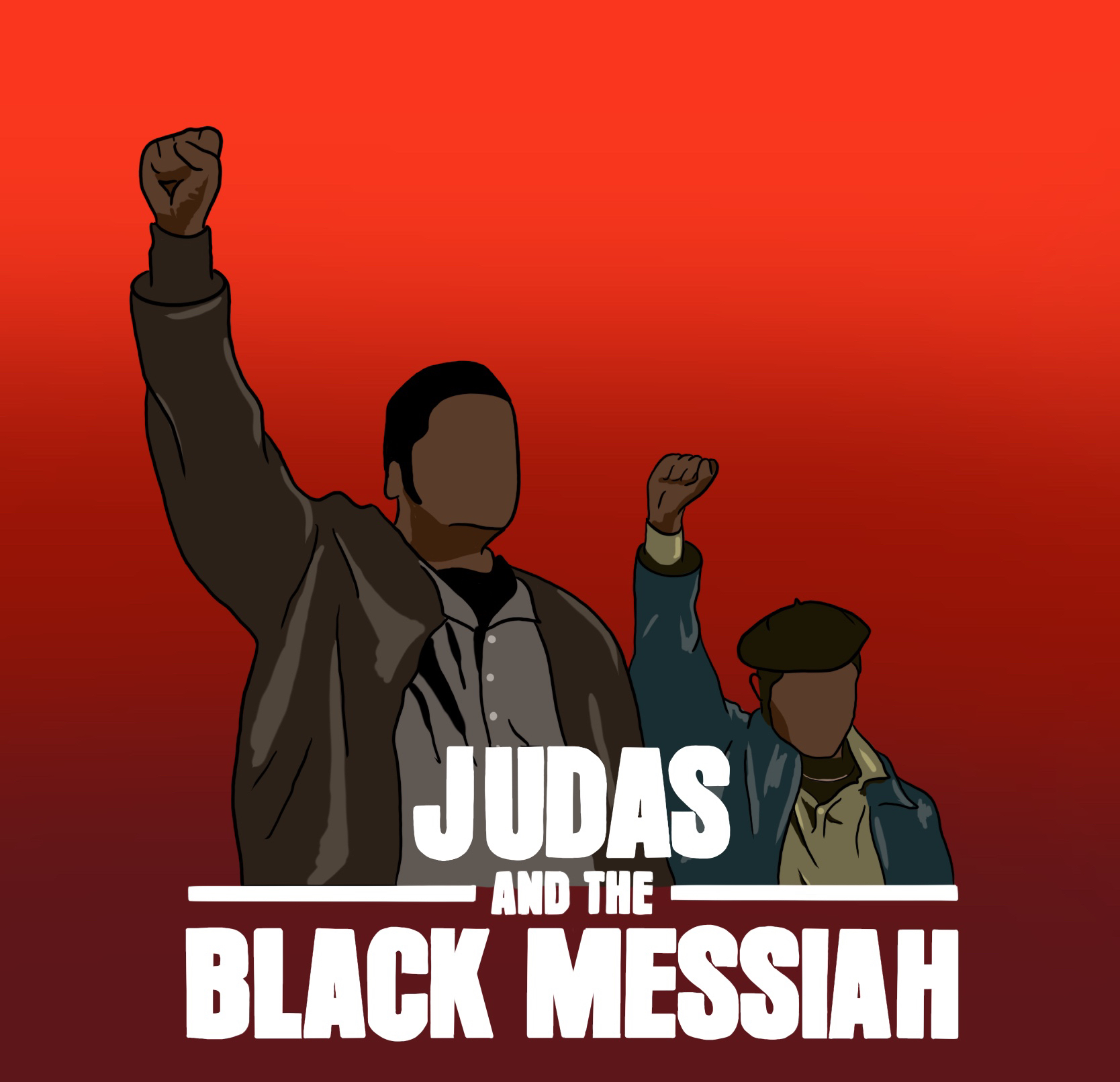“Judas and the Black Messiah” and the evolution of the biopic
February 26, 2021
 Sophie Lipset
Sophie LipsetThe biographical film has been a staple of Hollywood since its creation. Look at Oscar winners in all four of the acting categories from the past 10 years, and you will see that 17 awards have been earned for portrayals of actual people—seven of those being in the Lead Actor category. The conundrum for biographical film directors, however, has been finding ways to make those portraits interesting. That part should be easy—the studio is creating a film based on someone’s life—but unfortunately, over the years, biographical films have fallen into a formulaic pattern. One of the most famous of these begins with a spectacular person’s rise, tracks a dramatic downturn and then, finally, follows their journey back to greatness. If this sounds familiar, that is because it is seen in Bryan Singer’s and Dexter Fletcher’s “Bohemian Rhapsody,” James Mangold’s “Walk the Line,” Taylor Hackford’s “Ray” and other musical figure biopics. At this point, the real question is: how do you craft a film that honors its subject while creatively telling a story?
A few weeks ago, I saw a film that respected its true-life subject, while also being creatively stimulating. That film was Shaka King’s “Judas and the Black Messiah.” The focus is on Chairman Fred Hampton of the Illinois Black Panther Party, portrayed brilliantly by Daniel Kaluuya. King decided to break from the biopic formula: he co-wrote the script as a crime thriller, shining a light on FBI informant Bill O’Neal, played by LaKeith Stanfield, who was instrumental in the eventual assassination of Hampton in 1969. King explained that the story of Hampton is one that needs to be told in its honest form—a need that some studios would ignore—especially when looking at Hampton’s politics and beliefs. By mixing a crime story into Hampton’s, the politics cannot be separated from the narrative; the audience must understand the whole truth of Hampton, rather than having important facts censored. This approach is fascinating, and it adds emotional depth to the late Black Panther leader while showing the white supremacist policies of the FBI under J. Edgar Hoover.
I have read that some viewers wished that the film would have focused more on Hampton, but I think a “true” biopic would not have done him justice. “Judas and the Black Messiah” is a perfect example of a film that, first and foremost, focuses on telling a compelling story with equally compelling characters. More often than not, studios think that they can get by with telling the story of a compelling person but then fall into a formula. The biopic does the subject justice when it focuses on one event, relationship or period of time. These figures led interesting lives, had dozens of interesting experiences and changed over time. Traditional biographical films unfortunately lose some of the subject’s real humanity as they try to cover every single important point in that subject’s life. The performances of actors can hold up mediocre scripts, but only to a certain extent. “Judas and the Black Messiah” gives viewers the essence of who Hampton was, why he was important and why he was feared. Hampton’s presence is felt all throughout the film, even as he plays a supporting role. Would it have been better for the audience to have seen a movie that detailed his entire life? That could be the case for a documentary, but as a narrative film, “Judas and the Black Messiah” provides a haunting depiction of the U.S. government eradicating Black leaders during the 1960s.
Another example of a terrific biographical depiction is Ava Duvernay’s “Selma.” When I saw this film in 2013, I remember asking myself, “Why didn’t they just make a biopic about Dr. Martin Luther King Jr.?” In retrospect, I know that doing so would not have been as effective. By focusing on the march from Selma to Montgomery in 1965, the film focuses on issues that many Black Americans—not just King—encountered during the Civil Rights movement. If the film focused on King’s entire life, it would have diminished the march itself. And, by compressing his entire life into a two-and-a-half-hour film, it would have suggested that King’s struggle was individual. The same could be said for Hampton’s depiction—focusing on one life event gives creators an ability to demonstrate fascinating, nuanced stories while honoring the subject’s life. There is more to be learned from just the film, but it needs to at least give the essence of the figure.
I hope that biopics in the future take more interesting approaches to telling stories, rather than taking on the behemoth stories of people’s lives. Sure, that can make biographical films into epic sagas, but having isolated events can shine a light on the subject’s beliefs at that moment and feel even more personal. Rather than trying to make movies that win acting Oscars, it is more effective to tell a gripping story involving an important figure. That is true narrative storytelling, and thankfully King directed a film that could provide an example of creative craftsmanship for biographical filmmakers to come.

Comments
Before submitting a comment, please review our comment policy. Some key points from the policy: